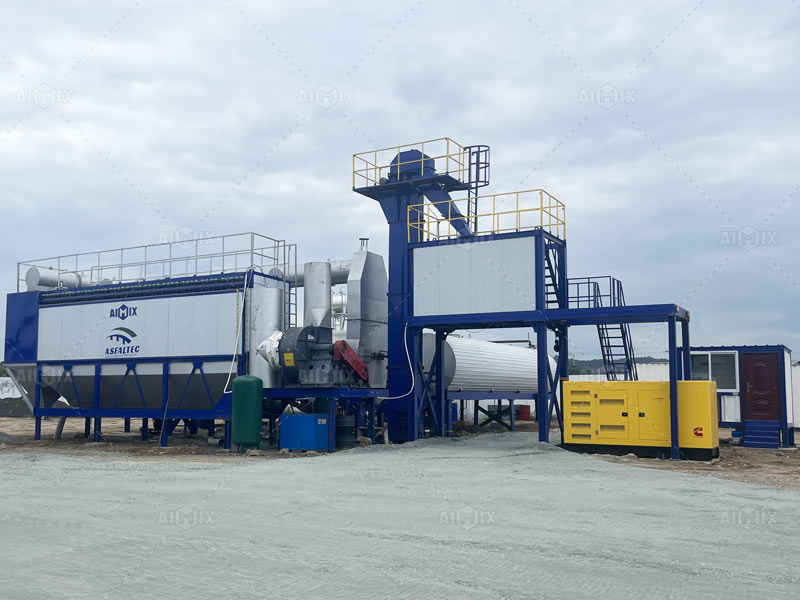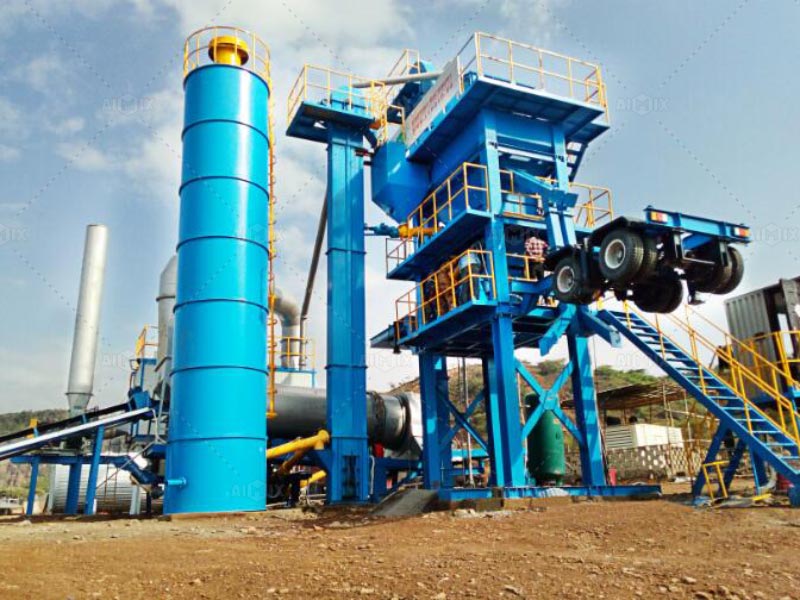Regular daily inspections are critical to ensuring the smooth operation, safety, and longevity of a mobile asphalt plant. Unlike stationary facilities, mobile asphalt plants are frequently relocated, increasing the need for routine checks to identify and correct potential issues early. Whether you’re operating a full-sized unit or a compact mini asphalt plant, implementing a thorough daily inspection routine minimizes downtime and maximizes efficiency. Below, we explore a structured approach to daily inspections for mobile asphalt plants.
Why Daily Inspections Matter
Mobile asphalt plants(Planta de asfalto movil) are often used in challenging environments and may face more wear and tear due to transportation and frequent setup. Daily inspections ensure:
- Early detection of mechanical faults
- Improved production quality and consistency
- Compliance with safety regulations
- Reduced repair costs and downtime
With the increasing number of asphalt plants for sale worldwide, buyers should understand that proper maintenance, starting with daily inspections, protects their investment.

Pre-Start Inspection Checklist
Before starting the asphalt plant(planta de asfalto) each day, conduct a visual and functional check of all major systems. This ensures that the equipment is safe and ready for operation.
1. Check Power and Electrical Systems
Inspect control panels, switches, and cables for any signs of wear, loose connections, or moisture intrusion. Faulty electrical systems can halt production or lead to safety hazards.
2. Inspect Fuel and Oil Levels
Verify that diesel or other fuel sources are at optimal levels and check oil levels in the burner and engines. Leaks or insufficient lubrication can cause overheating or damage during operation.
3. Examine Air and Hydraulic Systems
Look for air or hydraulic fluid leaks and test the air compressor and valves for proper operation. These systems are essential for opening and closing gates, running conveyor belts, and operating mixers.
4. Assess Structural Integrity
Inspect platforms, handrails, ladders, and support structures for signs of wear or instability. Since mobile plants are often moved, structural components must be stable and secure to avoid accidents.

Component-Specific Daily Checks
Each core component of the mobile asphalt plant for sale(planta de asfalto en venta) has specific parts that must be checked to maintain safe and efficient operations.
1. Cold Aggregate Feeder
- Ensure bins are not blocked or damaged
- Verify the conveyor belts are clean and tensioned correctly
- Check gearboxes and motors for unusual noise or heat
2. Drying Drum and Burner
- Inspect drum alignment and mounting bolts
- Clean the burner nozzle and check for proper flame ignition
- Check for excessive vibration or noise
Whether it’s a full-sized or mini asphalt plant, proper functioning of the drying system is essential to asphalt mix quality.
3. Dust Collection System
- Check bag filters or cyclone systems for clogging
- Empty dust bins if full
- Ensure air flow is unobstructed
4. Mixing Unit
- Inspect paddles, arms, and liners for wear
- Check for buildup of hardened asphalt that could affect mixing
- Ensure all sensors and scales are properly calibrated
5. Bitumen Supply System
- Verify tank temperature and heater operation
- Check for leaks in pipelines and valves
- Ensure agitators and pumps are working smoothly
Post-Operation Tasks
After production ends, a quick round of checks and cleanups will prepare the plant for the next day and reduce long-term maintenance needs.
1. Clean Critical Components
Remove any asphalt residue from mixers, chutes, and feeders to prevent hardening. Even in a compact mini asphalt plant(mini planta de asfalto), build-up can affect accuracy and performance.
2. Record Operational Data
Log run hours, fuel usage, and any issues noted during the day. This documentation is helpful for scheduling preventive maintenance and troubleshooting future problems.
3. Shut Down Systems Safely
Turn off burners, compressors, and motors in the correct sequence to avoid system damage. Make sure all moving parts are stopped before performing any end-of-day inspections.
Using a Standardized Inspection Checklist
Standardizing the inspection process ensures consistency and makes it easier for teams to follow. Your checklist can be printed and laminated or implemented in a digital system with mobile access. Make sure to include sections for:
- Start-up checks
- Mid-day inspections
- End-of-day tasks
- Operator comments and signatures
Conclusion
Performing daily inspections is essential for keeping your mobile asphalt plant in optimal working condition. Whether you operate a full-scale unit or a mini asphalt plant, routine checks help prevent breakdowns, reduce repair costs, and ensure high-quality asphalt production. When reviewing an asphalt plant for sale, consider the ease of access for inspections and maintenance—this will significantly impact long-term usability and operational success.